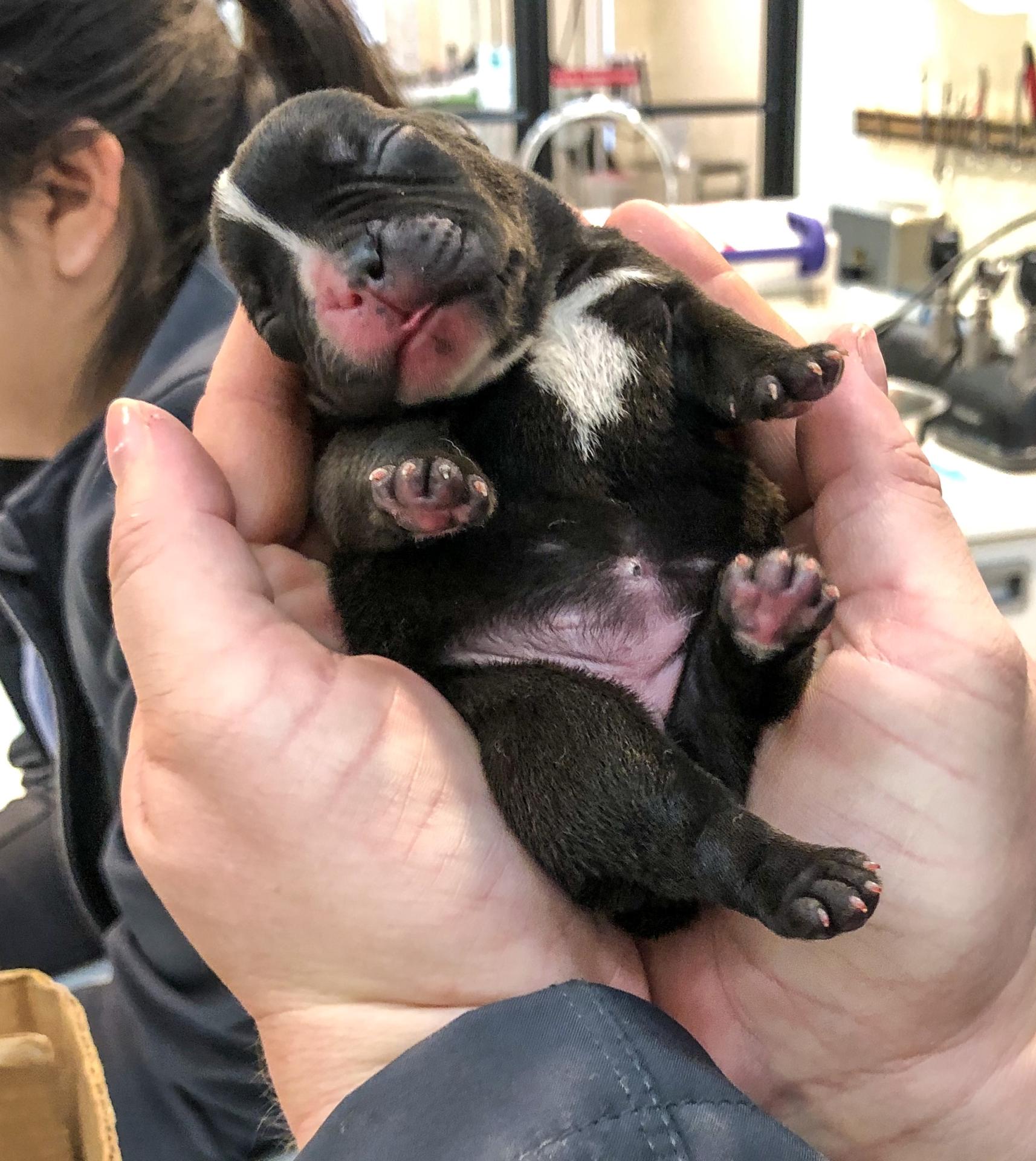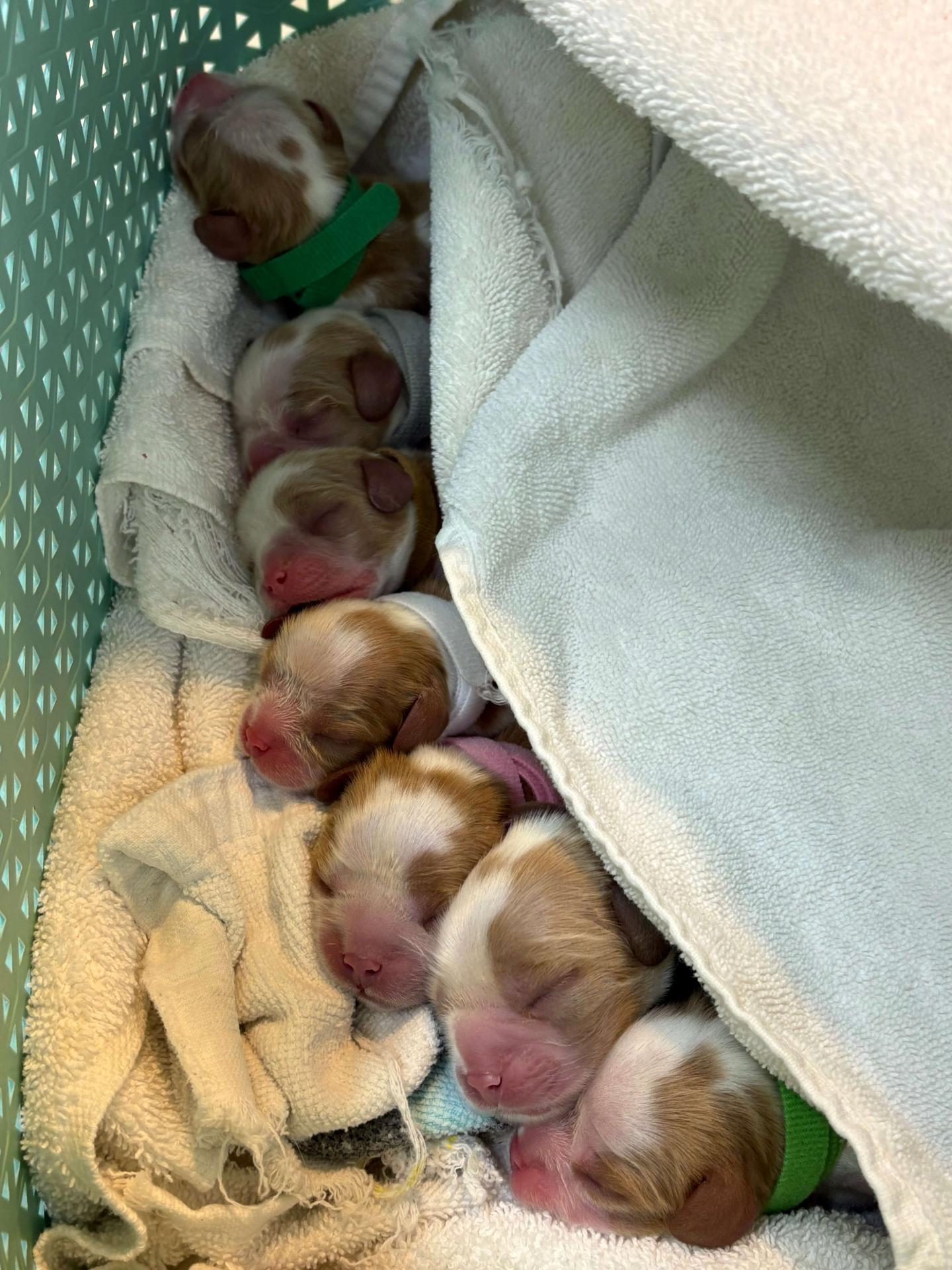Artificial Insemination 
Artificial insemination (AI) for dogs is a breeding technique where semen is collected from a male dog (stud) and then inserted into a female dogs (bitch) reproductive tract, typically her vagina or uterus, to achieve pregnancy. This process bypasses natural mating and can be particularly useful in situations where natural breeding is not feasible or desired.
Why use artificial insemination?
Breeders might choose AI for several reasons:
- Geographical distance: Allows the breeding of dogs located far from each other, eliminating the stress and cost of travel.
- Introducing new genetics: Facilitates bringing in new genes from different dog populations, enhancing diversity or specific traits.
- Utilizing semen from deceased dogs: Enables the continuation of valuable bloodlines even after a stud dog has passed away. Frozen semen is used for this.
- Preventing disease transmission: Reduces the risk of spreading sexually transmitted diseases between dogs. Semen collections routinely require blood tests for screening disease, e.g., Brucella canis
- Addressing natural mating difficulties: Can be an option for dogs with physical limitations or behavioral issues that hinder natural breeding.
Types of Artificial Insemination in Dogs
There are three main methods of AI used in dogs:
- Trans-vaginal (or intra-vaginal) insemination: Semen is deposited into the bitch's vagina using an insemination pipette. This is the simplest and least invasive method, only used with fresh or chilled semen.
- MOST COMMONLY USED AT NHAH: Transcervical Insemination (TCI): Semen is inserted directly into the uterus, bypassing the cervix, using a catheter and/or an endoscope. This provides more precise placement of the semen sample and requires special equipment (rigid endoscope), but can still be done without sedation as an outpatient procedure. Any type of semen, including frozen, can be used.
- Surgical insemination: This method involves a surgical procedure under general anesthesia to deposit the semen directly into the uterus. Surgical insemination has been banned in the UK due to welfare concerns and is largely replaced by TCI here in North America
Types of semen used:
- Fresh semen: Collected at the time of breeding and often extended to the desired volume for the procedure to be performed.
- Fresh chilled semen: Semen collected can be processed to remove most of the prostatic fluid and extended to the desired volume/concentration. This sample can be cooled to temperatures to permit transportation within the United States and stored longer than fresh semen, usually 24-72 hours.
- Frozen semen: The semen collection is further processed to allow dehydration of the cells in such a way that they can be cooled to temperatures where no biologic activity occurs (think below 100 degrees Celsius). The samples can be stored in liquid nitrogen for very long periods for preservation of genetics or used for international shipment and breeding. These samples can be held indefinitely at these low temperatures.
Important considerations:
- AI procedures should always be carried out by a veterinary professional to ensure safety and ethical practices. At NHAH, Dr. Mary Sebzda, a board-certified specialist in animal reproduction, performs all parts of the artificial insemination program
- Careful timing of the bitch's cycle is critical for maximizing pregnancy rates.
- Ethical considerations and the welfare of the dogs involved should be paramount when considering artificial insemination.
The process of artificial insemination (AI) has many advantages that include: 
- Allowing a breed to use genetics that come from across the country, so allows us to use great studs, without them having to travel to the female
- Helps to control some types of bacterial infections
- Allows for complete evaluation of the make for breeding soundness
- Allows for screening for Brucella canis (a sexually transmitted disease)
- Can prevent injury to either dog from breeding
- Permits breeding of dogs where natural breeding is unlikely (French and English Bulldogs)
In preparation for AI, ovulation timing is used, which can then help determine delivery date, and through monitoring after AI with ultrasound, we can closely monitor the pregnancy.
While this may be a good option for many, please check with your breed registry, as some will not permit AI and require natural mating only. Additionally, some males are not able to be collected for a variety of reasons.
